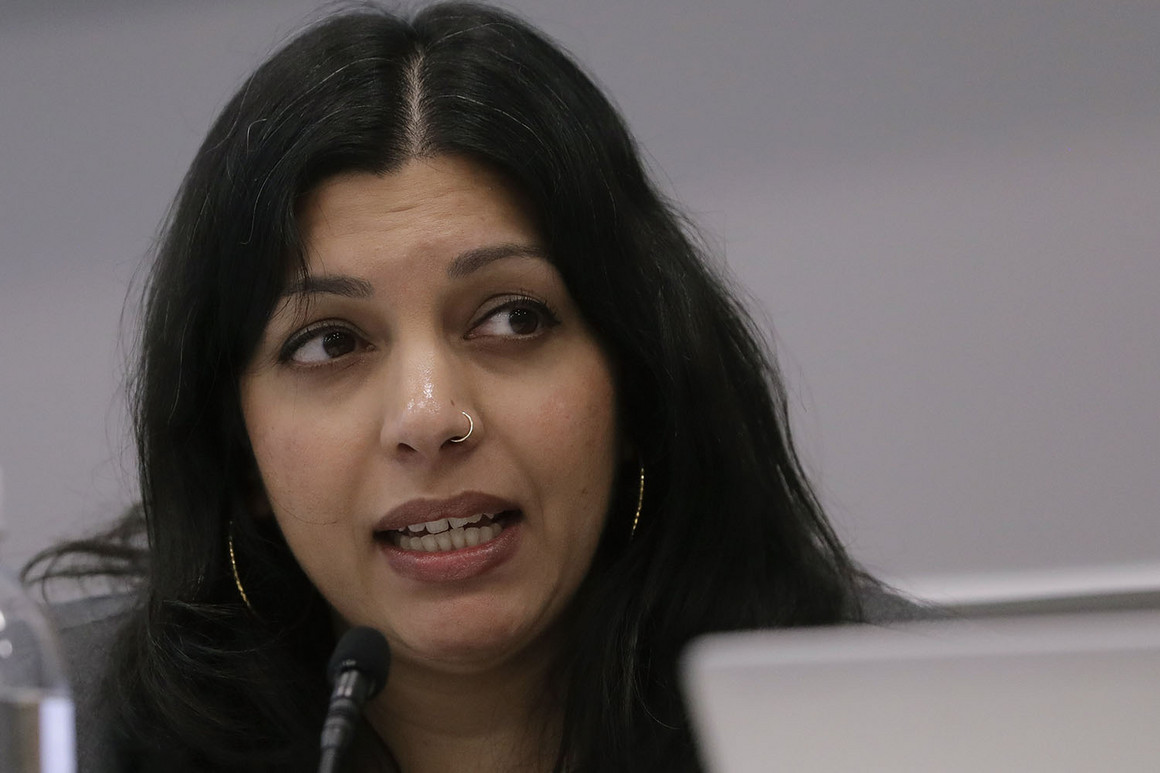Local rule is undermining Massachusetts’ attempt to create equity in the cannabis industry
BOSTON — Massachusetts was the first state to create a program to diversify the cannabis industry, in hopes that legalization wouldn’t only benefit already-wealthy white men.
So far, it hasn’t worked.
Massachusetts identified 122 women, minorities and veterans who should have gotten first crack when marijuana became legal for adult use in 2016. Fast forward to 2020: Of those 122 applicants with “economic empowerment” priority, only 27 have submitted applications to the state, eight have received a license, and none are open for business.
The applicants — and some state and local officials — blame the state’s complex system of local “host community agreements“ for sabotaging the licensing process and putting the entire diversity program at risk.
“I think the HCA process has turned into a barrier and a tool of inequality that it was never meant to be,” said Massachusetts Cannabis Commissioner Shaleen Title. “Some amount of local control is completely appropriate, and certainly every state has some degree of local control. But I do think in Massachusetts, the control that municipalities have has gone way beyond what’s appropriate.”
Other states also struggle with local control hindering overarching goals: In California and Colorado, more than seven in 10 cities bar marijuana businesses from operating. In Washington state, one in four cities still bar marijuana sales. And in Oregon, five counties in the central and eastern part of the state do not have a single city selling marijuana, creating long driving distances for many rural Oregonians looking for access to cannabis.
Massachusetts’ problem, though, goes beyond cities not wanting pot on their turf. The lack of state oversight of host community agreements has resulted in corruption and groups shut out of the licensing process.
Now the Commonwealth is working on a fix: A bill that would give the Cannabis Commission the ability to review host community agreements advanced out of committee in January.
Host community agreements are a five-year contract between the business owner and the town that requires the cannabis business to pay up to 3 percent of its gross annual income back to the town for any extra costs the town may incur. That “community impact fee,” though, has been misused in so many towns that the federal government has launched a criminal probe.
In August 2018, the Boston Globe reported that many host community agreements were potentially violating state law. In January 2019, the Massachusetts Grower Advocacy Council told state regulators that 79 percent of the host community agreements they reviewed in the state “require marijuana establishments to pay annual contributions to the town that either plainly violate the statutory terms or may result in unlawful community impact fees.” Last week, public radio station WGBH reported that out of approximately 500 community agreements, 314 went beyond the limits set by the state.
In November, U.S. Attorney Andrew Lelling convened a grand jury to investigate corruption connected to the issuance of local cannabis licenses.
MGAC’s Peter Bernard said that these additional payments have included everything from one-time fees of $90,000 to the city and local charities, to purchasing the city a new snow plow. Bernard said that these extra fees mean out-of-state operators can come in with deeper pockets and the ability to offer city governments more than smaller, local businesses.
“There’s me and two of my buddies who’ve mortgaged our houses and cashed out our 401K’s to try to get this done; we don’t have an extra hundred grand to give to the town,” Bernard said. “All the smaller operators have been getting pushed aside or being forced to sign agreements beyond the law.”
Raising capital is particularly difficult for cannabis businesses. Because marijuana remains federally illegal, most banks won’t provide financing out of fear that they’ll be punished.
“They say you’ve got to have over a million dollars just to start up a business,” Boston City Council President Kim Janey told POLITICO at a cannabis industry conference in Boston. “Financial resources [are] a barrier to entry for many of the [economic empowerment] applicants that I’m trying to help.”
Even when cities are trying to create regulations that work for business owners, this is still a problem, according to both Janey and Title.
“Some [barriers] are overt: If you don’t know the right person, if you don’t know the right lobbyist, you’re not going to get a license,” said Title. “And there’s nothing illegal about that.”
Cambridge took a number of steps to encourage economic empowerment applicants. The city reduced the required distance between two dispensaries — meaning that more applicants could be licensed. They also gave two years of priority only to economic empowerment applicants, leaving out the local medical marijuana dispensaries that have equal priority status under state law. That triggered a lawsuit by medical marijuana company Revolutionary Clinics, slowing the process down exponentially. Last month, a state judge issued a preliminary injunction striking down Cambridge’s rules because they violated state law.
Economic empowerment applicants Sieh and Leah Samura have been waiting for a Cambridge license for over a year. This isn’t the first time they’ve been through this; after a year of waiting for a host community agreement in Boston, the Samuras ended up partnering with a larger company instead of opening their own shop.
The opportunity to run social equity programs for City Farm, which hopes to open this summer, makes the Boston partnership worth it for Sieh. But the Samuras still want to own their own shops, and that journey has them hemorrhaging money. Applicants must have their dispensary location before applying for a community agreement, so the Samuras are paying $40,000 per month for two locations in Cambridge that aren’t generating a dime of revenue.
“When [lawmakers] said ‘go get real estate first,’ they knew then what they were doing. They decided at that point [that the] only people that would get these businesses are very large, monied, experienced corporate types who could get — and hold — real estate in the best markets … for as long as it takes,” explained Sieh. “That’s not EEs. We don’t have money to waste on rent.”
In order to prevent the situations that arose both in well-meaning cities and those that have taken advantage of the process, Title says there needs to be more oversight. “What we need are cities and towns to do the same thing, so that we have a consistent and fair process,” she explained. “There’s no clear approach or process for how cities and towns should make these decisions, so it’s sort of hodgepodge.”
The state is trying to bring more parity to state and local regulations. The bill making its way through the state legislature would give the state cannabis commission the power to assess the community agreements and tell communities what benchmarks they need to meet.
Massachusetts’ proposed law takes a small step toward giving the state the ability to regulate local agreements. But Title would like to see more.
“I would like to see cities have the same mandate as the state in terms of diversity,” Title said. “The way that they choose to do it can be flexible, based on the culture and needs of that specific community.”



